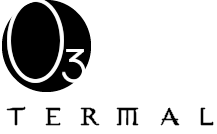As we age, our body changes, both in appearance and function. For this reason, it is important that we adapt to these changes and modify some of our habits, for example, in the area of nutrition and physical activity.
As we age, especially with the arrival of menopause, our body tends to accumulate more and more fat and it becomes more difficult to lose weight. These are some of the reasons that cause this weight gain:
– Decreases basal metabolism. Basal metabolism is the energy expenditure that our body makes to be able to carry out basic vital activities such as: breathing, our organs functioning, etc. As we get older, this expense becomes less and less and makes us burn fewer calories. It is considered that with each passing decade we burn an average of 150 fewer calories per day.
– Less physical activity. As we age we tend to have less energy and, as a result, we move less. This causes us to burn fewer calories than we did when we were younger. Furthermore, doing less exercise leads to a loss of muscle mass that is replaced by
- Hormonal changes. The aging process causes a decrease in hormone and fat production.
– Inadequate nutrition. Taking into account the previous aspects, it would be logical that we eat less food because we move less and our body uses less energy. However, the opposite usually happens. As we get older we eat more and worse. This leads to an increase in body fat, especially in the abdominal area.
In conclusion, the cause of age-related weight gain is an imbalance between the calories we eat and the calories we burn. We eat more than we spend.
TIPS TO AVOID AGE-RELATED WEIGHT GAIN
– Do strength exercises. Muscle tissue burns calories at a much faster rate than fat. For this reason, it is important to try to maintain muscle mass. It will help us keep our body healthier, more aesthetic and will combat weight gain.
– Eat healthy. Always opt for a healthy diet based on vegetables and fruits, whole grains, meat, fish, legumes, nuts and eggs.
– Eat enough protein. To maintain good muscles it is important to eat at least two servings of protein a day. Those foods high in protein are: meat, fish, eggs and legumes.
– Avoid processed and high-calorie foods. These types of foods contain many calories and are very little filling. Therefore, in this case it is much more interesting to prioritize the intake of vegetables, since they are low-calorie foods, which will allow you to eat more and feel fuller.
– Reduce portions. Taking into account that we burn fewer calories than before, we will have to eat less and it will be important to control the amounts we eat. To help you, always use small plates to reduce the size of the portions and, in addition, you can use the hand method, which is based on using your hand as a reference to know how much food to put on your plate according to the type of food that is being eaten. treats.
- Move on. Stay active as much as possible and walk at least 30 minutes a day.
- Sleep well. Sleep is essential to maintain a healthy weight.




